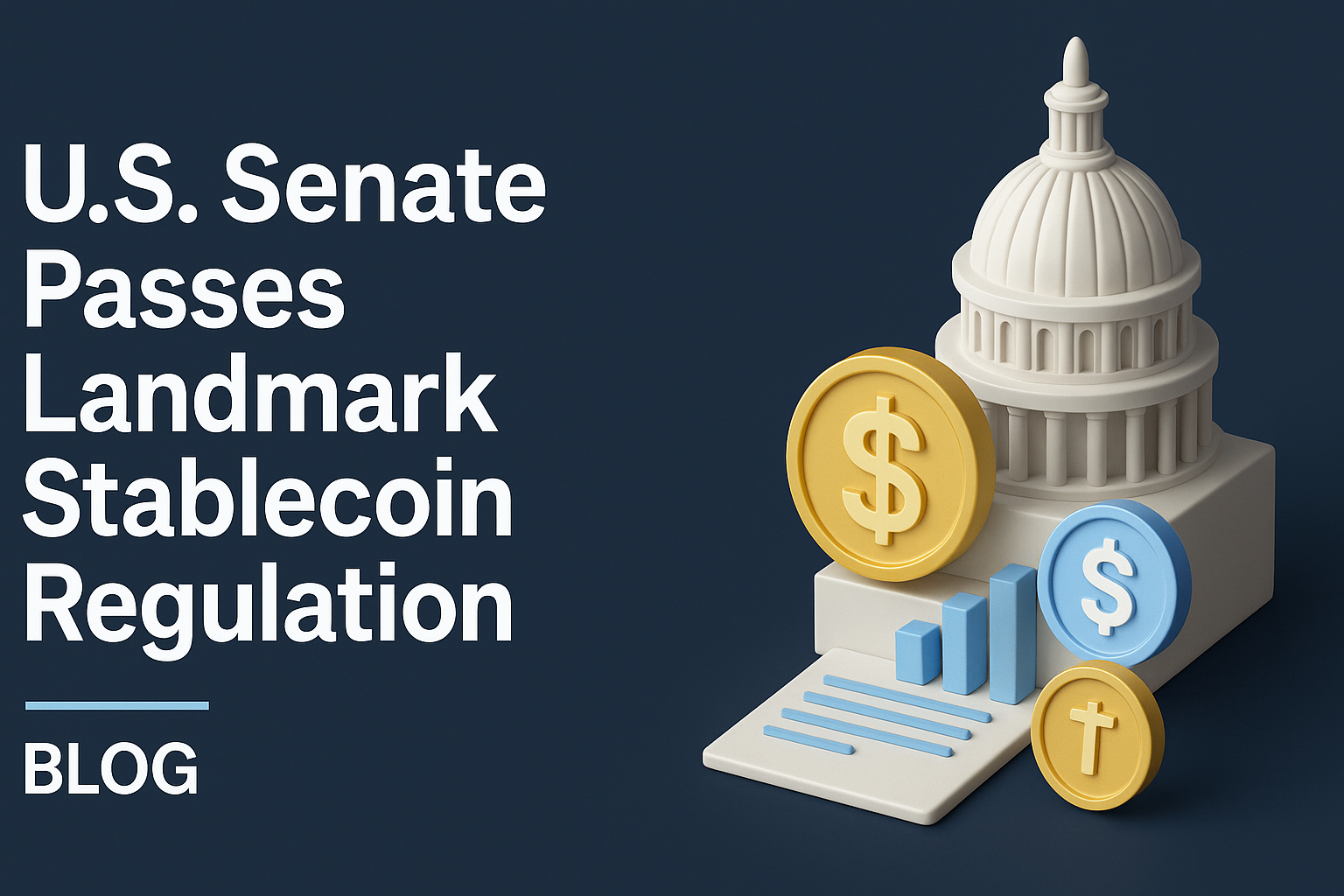In a significant bipartisan move, the U.S. Senate has passed the GENIUS Act, the first major federal legislation aimed at regulating stablecoins—digital assets tied to fiat currencies like the U.S. dollar. The bill was approved with a 68–30 vote, with 18 Democrats joining Republican senators to support it. The legislation now moves to the House of Representatives, where quick action is expected before the August recess.
Key Features of the GENIUS Act
The Guiding and Establishing National Innovation for U.S. Stablecoins (GENIUS) Act lays out clear regulatory requirements. It allows only insured banks and licensed financial institutions to issue payment stablecoins. Smaller firms can operate under state oversight, while entities issuing over $10 billion must comply with federal regulations. All stablecoins must be fully backed by U.S. dollars or short-term Treasury securities. Issuers must also provide monthly reserve reports and undergo annual audits.
Industry Applauds Regulatory Clarity
Supporters believe the legislation will solidify U.S. dominance in digital finance by fostering innovation and ensuring consumer protection. Senator Bill Hagerty, who introduced the bill, called it a milestone that secures the dollar’s role in crypto payments. Industry stakeholders also welcomed the bill, saying it offers the certainty needed to drive mainstream stablecoin adoption.
Critics Raise Concerns Over Loopholes
Not all lawmakers are on board. Senator Elizabeth Warren criticized the bill for lacking safeguards against financial risk and failing to prevent large tech firms from launching private stablecoins. Some Democrats also raised ethical concerns regarding the president’s family’s alleged involvement in crypto businesses.
Next Steps in the House
As the bill heads to the House, it may undergo revisions or be combined with broader crypto regulatory frameworks. While the GENIUS Act has cleared a major hurdle, its final form and long-term impact on the digital asset landscape are still taking shape.
What This Means for Crypto Businesses
The passage of the GENIUS Act signals a shift from the regulatory uncertainty that has long plagued crypto startups. With clear rules on who can issue stablecoins and how reserves must be managed, crypto businesses now have a framework they can confidently build on. This clarity is likely to attract more institutional investment, as well as foster innovation among compliant fintech companies and Web3 developers.
Implications for Global Digital Finance
The U.S. stepping forward with a stablecoin-specific regulatory structure also places it in a stronger position globally. As countries like the U.K., Singapore, and Japan work on their own frameworks, the GENIUS Act sets a precedent for balancing innovation with oversight. If the act succeeds in building market trust and stability, it could become a model for other nations to follow in regulating crypto assets.
Potential for CBDC Integration
Interestingly, the GENIUS Act may pave the way for smoother integration with future Central Bank Digital Currencies (CBDCs). With stablecoins now under a clear legal regime, interoperability between government-issued digital currencies and private stablecoins becomes more feasible. This could enhance both retail and institutional use of digital dollars in cross-border transactions.
Looking Ahead
As the bill awaits approval from the House and possibly President Trump’s signature, stakeholders across the crypto and financial industries will be watching closely. Whether the GENIUS Act becomes the gold standard for stablecoin regulation or serves as a stepping stone for broader reform, one thing is clear: stablecoins are no longer operating in a legal gray zone. A new era of structured innovation in crypto has begun.



